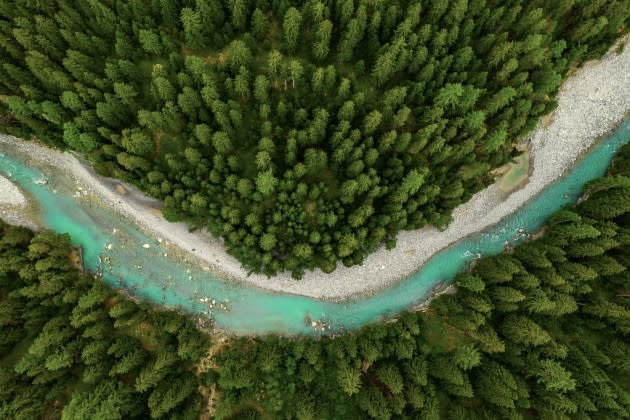L’Oréal Names New Recipients of Biodiversity Preservation Funding

PARIS — Just ahead of Earth Day on April 22, beauty giant L’Oréal has announced three new investments in biodiversity preservation projects through its impact investment vehicle, the L’Oréal Fund for Nature Regeneration.
The 50 million euro fund, created in 2020 and with a duration of 15 years, has now committed a total of 22 million euros to projects aimed at restoring the world’s biodiversity.
More from WWD
The three new recipients, NetZero, ReforesTerra and Mangroves.Now, were selected for their respective approaches to carbon capture in soils, reforestation and mangrove restoration, and for their potential positive impact on both the environment and local communities.
“We select projects worldwide according to the principles of impact investing, i.e. projects creating positive environmental and social value for communities while securing a return on investment,” L’Oréal chief corporate responsibility officer Alexandra Palt explained to WWD ahead of the announcement.
“Each project selected goes through an extensive due-diligence process combining impact and financial assessments, with a priority attention to protect local populations and communities living in those ecosystems,” she said.
The fund aims to support between 12 and 15 projects in total, and they are expected to be deployed and implemented on the ground within 18 months of investment, she explained.
“Projects have to become economically viable over a period of maximum 10 years, and generate sufficient cashflows within a reasonable timeframe.” Investments are designed to extend up to 15 years, in line with the duration of the fund, she said.
By 2030, the aim is for the initiatives the fund supports to help restore 1 million hectares of degraded ecosystems and capture between 15 million and 20 million tons of carbon dioxide, as well as create hundreds of job opportunities. It is managed by Mirova Natural Capital, a subsidiary of Natixis Investment Managers.
“According to the COP15, already 75 percent of the land and 66 percent of the aquatic environment has been damaged but biodiversity only benefits from 3 percent of climate finance investment,” said Palt of the importance of initiatives specific to protecting biodiversity.
The L’Oréal Fund for Nature Regeneration is part of the L’Oréal for the Future solidarity program, which plans to allocate a total of 150 million euros in investments to initiatives supporting vulnerable women and the environment, with a third of the sum going to the former, a third to helping regenerate damaged natural ecosystems and a third to preventing climate change through projects dedicated to the circular economy.
While the fund does not have a direct bearing on L’Oréal’s business overall, it is also acting to reduce the impact of its own operations on ecosystems. “Change in land use is one of the major causes of biodiversity loss,” said Palt. “That is why L’Oréal has committed to ensuring no increase of its footprint on biodiversity linked to the supply of bio-based raw materials, compared to 2019.”
It has also committed, by 2030, that its bio-based ingredients for formulas and packaging materials will be traceable and come from sustainable sources. In 2022, the ratio was already at 92 percent, Palt said.
Among the biodiversity projects to be supported with this latest round of investments, NetZero is a French venture operating in tropical regions including Cameroon and Brazil, specializing in long-term carbon removal from the atmosphere by turning agricultural residues into biochar, a non-polluting carbon that can be added to improve degraded soil. The technology has been recognized by the Intergovernmental Panel on Climate Change as a viable solution for potentially removing between 1 billion and 2 billion tons of carbon dioxide emissions from the atmosphere each year.
ReforestTerra, based in Brazil, aims to restore 2,000 hectares of land in the Amazon degraded by pastures by engaging with smallholders to plant new trees and create a favorable environment for natural regeneration, principally in the lower Rio Jamari basin. The project is one of the largest involved in afforestation, reforestation and revegetation initiatives in Brazil.
Mangroves.Now, for its part, is involved in community-based mangrove restoration projects in South Asian countries including Bangladesh, India and Sri Lanka, where mangrove areas have suffered from significant deforestation over the past 30 years, according to L’Oréal. The project aims to provide access to financing for small-scale projects with local nongovernmental organizations, ultimately restoring 20,000 hectares of previously degraded land and sharing benefits with local communities.
The two past investments through the fund have been in the Real Wild Estates Company, the U.K.’s first rewilding business, and Rize carbon financing, which aims to help France’s farming sector implement sustainable practices.
Best of WWD
